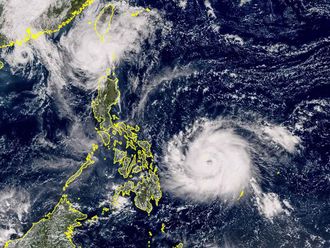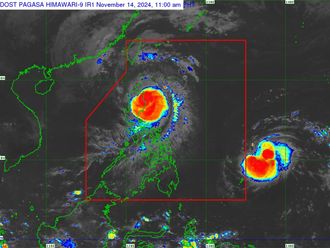Manila: Overseas Filipino workers (OFWs) in Saudi Arabia were advised not to return to the Philippines to visit their relatives following reports that many of them were barred from returning to their jobs, a radio report said.
"To those who are planning to take a vacation, I hope they postpone their plans," Carlos Cao, administrator of the Philippine Overseas Employment Administration told ABS CBN.
"We will get in touch with our counterparts in Saudi Arabia, to clarify reports that some vacationing OFWs were given exit visa without the accompanying re-entry visa," said Cao.
About 30,000 to 50,000 OFWs were expected to return home in the next five months, records showed.
Earlier, John Leonard Monterona, of the militant Migrante in the Middle East narrated to the Philippine Star, "There were four OFW-engineers who called me in Riyadh. They expressed surprised that their respective exit/re-entry visa had been stamped ‘exit' only by the Saudi immigration officer at the counter."
"We reported that matter to Philippine Labour Attaché Albert Valenciano in Riyadh. He was surprised by that move," Monterona said, adding this could be a sign that skilled Filipino workers and professionals might also lose their jobs because of Saudi Arabia's labour policy.
Cao refused to comment when asked how many OFWs will be affected by Saudi Arabia's programme that compelled firms to employ more local residents
Observers said that Saudi Arabia's new labour policy has exacerbated the effects of the Philippine government's hiring condition that domestic helpers should receive a monthly base $400 salary.
Saudi Arabia hosts 1.3 million OFWS, 20,000 to 50,000 of them are domestic workers, drivers, gardeners, janitors, and manual workers, the most endangered; and 90,000 others are skilled workers who have 50 per cent chance of retaining their jobs, records showed.
Saudi Arabia has already stopped granting work permits to new applicant domestic helpers from the Philippines and Indonesia.
There are nine million OFWs worldwide who send about $ 18 billion to their relatives in the Philippines every year.











